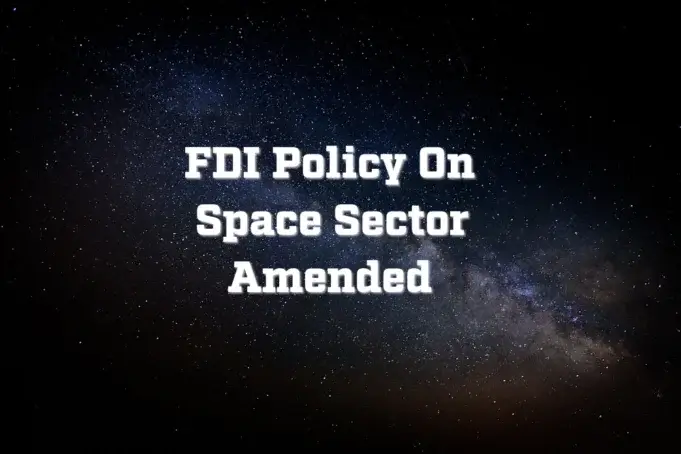The Union Cabinet, led by Prime Minister Shri Narendra Modi, gave the green light to an amendment in the Foreign Direct Investment (FDI) policy concerning the space sector on 21 February 2024. This amendment divides the satellite sub-sector into three distinct activities, each with specific limits for foreign investment.
The Indian Space Policy 2023 serves as a comprehensive and adaptable framework to realize India’s potential in the space sector by fostering increased private involvement. This policy aims to bolster space capabilities, cultivate a robust commercial presence in space, leverage space technology for broader technological advancements, foster international collaborations, and establish an ecosystem conducive to effective space applications.
Previously, FDI in the establishment and operation of satellites required government approval. However, in alignment with the objectives outlined in the Indian Space Policy 2023, the Union Cabinet has relaxed the FDI policy, setting more lenient thresholds for various sub-sectors/activities.
Consultations held with stakeholders including IN-SPACe, ISRO, NSIL, and industrial partners revealed the existing capabilities in the satellite and launch vehicle domains. With increased investment, these entities stand to enhance product sophistication, expand global operations, and gain a larger share of the global space economy.
The proposed reforms aim to liberalize FDI provisions in the space sector by streamlining entry routes and offering clarity on FDI in satellites, launch vehicles, creation of spaceports, and manufacturing of space-related components and systems.
Under the amended FDI policy, 100 percent FDI is permitted in the space sector. The revised entry routes are designed to attract potential investors to Indian space companies.
The entry routes under the amended policy are delineated as follows:
- Up to 74 percent under the Automatic route for satellite manufacturing and operation, satellite data products, and ground and user segments. Beyond 74 percent, government approval is required.
- Up to 49 percent under the Automatic route for launch vehicles, associated systems or subsystems, and spaceport creation. Beyond 49 percent, government approval is necessary.
- Up to 100 percent under the Automatic route for manufacturing components and systems/sub-systems for satellites, ground segments, and user segments.
Increased private sector involvement is anticipated to spur employment generation, facilitate technology absorption, and bolster sectoral self-reliance. It is poised to integrate Indian companies into global value chains, encouraging domestic manufacturing and aligning with the ‘Make In India’ and ‘Atmanirbhar Bharat’ initiatives of the Government.











